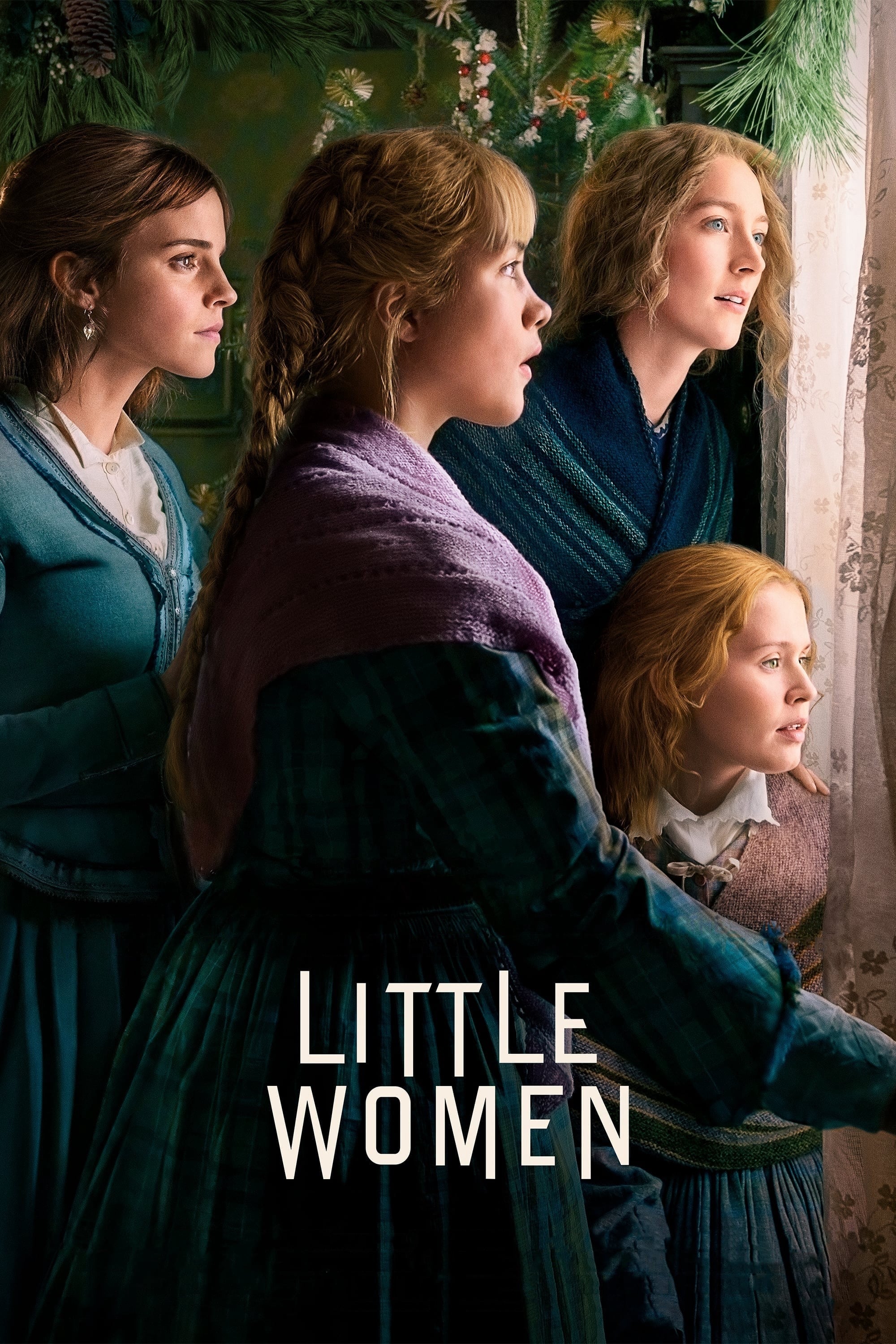A classic story about young women coming of age, historically significant because it’s a feminist story from a feminist author when women were not allowed to be feminists. The detail and tenuous connection of scenes to the larger dramatic story suggests that a lot of the material is autobiographical, and indeed it is.
On the surface, it’s a beautiful film, with nice photography, careful attention to sets and costumes. It seems to be a nice window into the period. The ensemble cast turns in what seem to be period-authentic, believable performances. Saoirse, in particular, is quite a presence. Florence Pugh reminds me a lot of someone else, can’t remember who. The sisters, though, hardly resemble each other or their parents at all. Streep and Cooper are nice veteran anchors. Odenkirk’s an odd choice, but he pulls it off. Chalomet is charming as Lawrence.
But what about their accents? Sure, the standard American accents by the English, Irish, and Australian actors (I don’t think we can say “actresses” anymore) are good, but I wonder if they and everyone else in the film should have had Massachusetts accents, as all of the characters except for the French professor were seemingly born and raised there. Proper accents would have been an impressive acting accomplishment and would have made things feel a bit more authentic.
And then there’s dialogue. It’s blurringly and unrealistically fast, especially when all the sisters are together, with the girls trying to outwit each other with back-and-forth so quick that it’s hard to keep up. Is that really how people talked back then? Never in my life have I seen a group of people talk that quickly with each other.
The story gets muddled with the number of characters we’re introduced to early on without any explanation. It’s not clear who’s important to who. Relationships are all over the place. Lawrence seems to love all of them and none of them at the same time. Scene after scene, the women get very emotional about relationships and events that I don’t always understand.
To add to the confusion, there is inconsistent and unpredictable use of flashbacks. Once, early on, we are given a graphic which clearly indicates a flashback, but there are several other occasions where we seem to have jumped in time without any indication. It’s up to us to figure out not only where we are but when we are on our own, and it’s not always clear. What’s the point of all these flashbacks, anyway? Why not tell the story linearly? Is it because a linear story would reveal that there’s not much of a story at all? And then there’s a dream sequence, which sort of works but is perhaps not advisable when we’re already confused about what’s going on.
As a feminist piece, I find the message confusing. On one hand, the story is critical of patriarchy, featuring women who want to assert themselves, who want to be empowered, and who suggest that they can be happy without men. But ultimately, they all need a man to love them in order to be happy. If this is really a feminist piece, it would be a lot more persuasive if the characters did things that were a lot more feminist.
On another level, the film is a very interesting exploration of gender, with characters having ambiguous names (Jo and Laurie), women and men dressing as each other, and Jo having short hair. There’s lots of gender fluidity to chew on here, but what’s the message? Is it simply that being cross-gender is OK?
And then there’s the issue of Jo’s romance and marriage. There are three levels of story here: a) the story Jo writes for the newspaper, b) the story that Alcott has wrote as the source material for this film, and c) the story that director Greta Gerwig has chosen to tell with this film. In all three cases, the story is tied up neatly with a traditional romance. In my opinion, this is a mistake and a huge missed opportunity to make an important feminist statement.
I understand why a) Jo had to sell out in the story she wrote for the newspaper, changing her story as her editor demanded so that her character gets married in the end. This was how fiction of the time had to be written. I even understand why b) Alcott had to sell out and marry off Jo in her novel. Alcott never married and seemingly never had a romantic relationship with a man, and while this story was autobiographical, Alcott was probably under similar real-life pressure to marry off Jo in the end in order to get her book published and circulated. But c) it’s 2019, and Gerwig has an opportunity to give the adaptation the ending that Alcott herself would probably have preferred. How powerful would it have been, how much would it have honored Alcott and her autobiographical story, if Jo did not need a man in the end, did not get married, and found happiness and success on her own, just as Alcott did? We live in a day and age where feminists can and should make statements like these. I believe Gerwig’s decision to remain stubbornly faithful to the source material and marry off Jo is the biggest failure of the film.

 I'm a
I'm a
Recent Comments